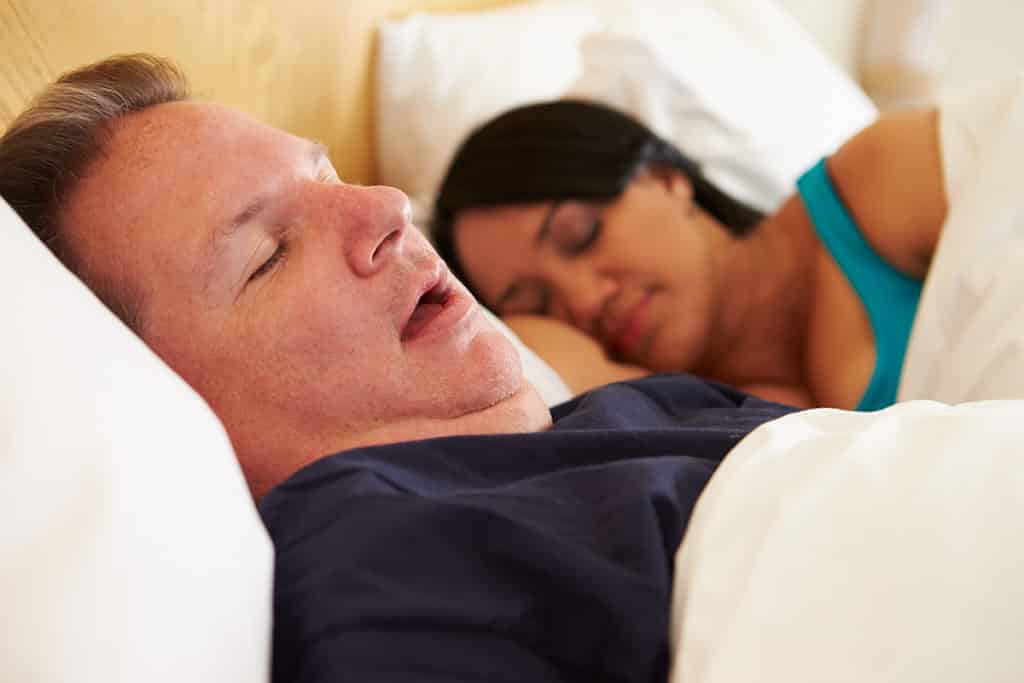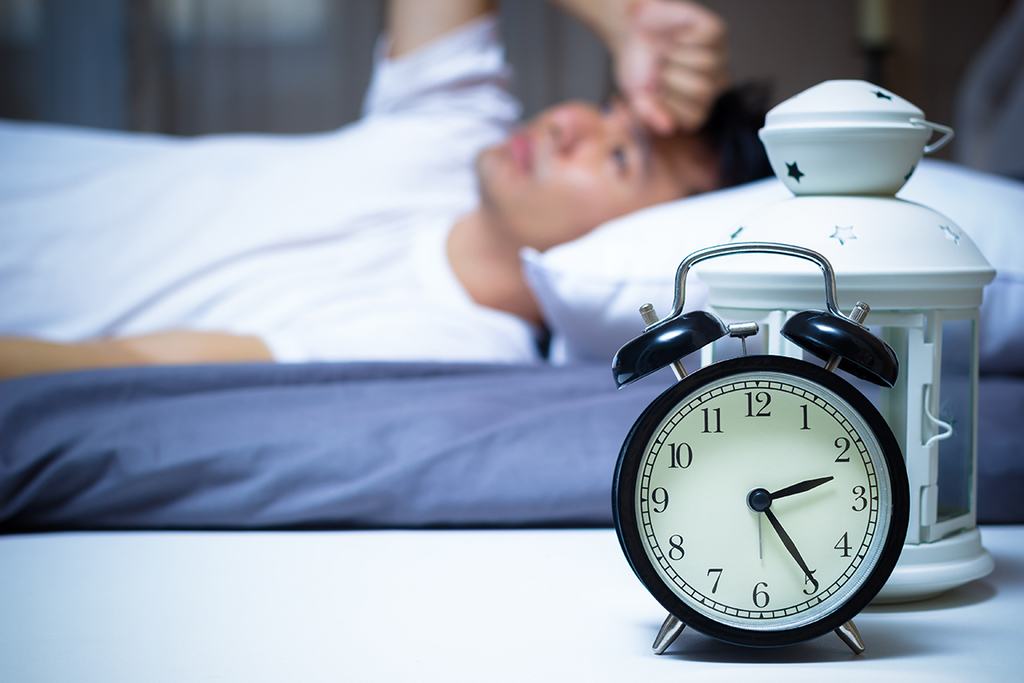Picture this: You settle down for the night at 10 pm. As you hop into bed, you think of how refreshed you’ll feel in the morning after a full eight hours of sleep. But when you wake up, you realize it’s still pitch dark—and when you check the clock, you see it’s 3 am.
If this has ever happened to you, you’re not alone. Some people are lucky enough to fall back asleep quickly when this happens, but others spend hours tossing and turning. All of this lost sleep can make it hard to function the next day.
Whichever camp you fall into, most of us would prefer not to wake up in the middle of the night. So let’s take a look at some of the most common reasons it happens and some steps you can take to prevent it.
Understanding Nighttime Awakenings
Most of us wake up in the middle of the night more than we realize. It’s normal to have mini awakenings throughout the night, but typically we fall back asleep so quickly that we don’t even notice.
Sleep Cycle and Stages
Our bodies go through different cycles, known as circadian rhythms, throughout the day. One circadian rhythm is the sleep-wake cycle, which controls when your body wants to sleep and when it wants to wake up.
The sleep-wake cycle, like all circadian rhythms, is based on a period of 24 hours. You might wake up within a few hours of going to bed if you’re trying to sleep at a time inconsistent with your sleep-wake cycle.

When you’re asleep, you go through what’s called a sleep cycle. Your body moves through a variety of sleep stages as part of a cycle that lasts about 80-100 minutes in total. When you’re done with one cycle, the process starts over—and you might wake up when it does, at least for a brief moment. You’re also more likely to wake up during light stages of sleep.
Importance of Uninterrupted Sleep
If it’s hard or impossible to fall back asleep, you may struggle to get the sleep you need. Poor sleep can leave you feeling grumpy, tired, sad or anxious. It can also take a toll on your performance, memory and even your immune system.
Over time, sleep deprivation can increase your risk of medical conditions like depression, high blood pressure, heart disease, diabetes and certain types of cancers. It can also make symptoms worse for people who already have health issues.
Common Reasons for Waking Up In the Middle of the Night
Understanding why you wake up in the middle of the night is the first step to fixing the problem. Here are some of the most common reasons.
Poor Sleep Hygiene
If you have poor sleep hygiene, you may find it harder to fall asleep and stay asleep. Sleep hygiene includes habits that might not seem related to sleep at first glance, so you might have poor sleep hygiene without realizing it.
Some examples of poor sleep hygiene include sleeping at irregular times, doing homework or scrolling on your phone in bed and having caffeine or alcohol before bedtime. Read on to learn how to improve your sleep hygiene.
Environmental Factors
People sleep best in a quiet, dark environment, so if you have a habit of falling asleep in front of the television, that could wreak havoc on your sleep.
Temperature is also important. You might wake up in the middle of the night if it’s too hot or cold in the room. Experts from the Cleveland Clinic suggest keeping your bedroom temperature at around 60 to 67 degrees Fahrenheit.
Stress and Anxiety
Stress and anxiety can take a toll on your sleep. Not only can they make it hard to fall asleep, but they can cause you to wake up before you’re ready. Of course, this is also stressful, so it can turn into a vicious cycle.

The solution? If you can’t change or get rid of the stressors in your life, you should learn stress management techniques such as yoga or deep breathing. Create a relaxing routine to get yourself in the right headspace before you go to bed. For example, you may want to try meditating or taking a warm bath.
Insomnia
If you’ve ever had insomnia, you know that it can turn bedtime into a nightmare. What a lot of people don’t realize, though, is that insomnia doesn’t just make it hard to fall asleep—it can also make it difficult to stay asleep. This is called “middle insomnia” or “middle-of-the-night insomnia”. You might also find yourself waking up too early and not being able to fall back asleep, which is called terminal insomnia.
People with insomnia may feel sleepy, grumpy, depressed and anxious during the day. Improving your sleep hygiene and making some basic lifestyle changes can go a long way, but it’s still best to see your doctor if you have symptoms of insomnia.
Diet and Nutrition
Your diet and nutrition can play a big role in how well you sleep at night. A 2020 review in the journal Nutrients concluded that diets with fewer carbohydrates were associated with poorer sleep. Meanwhile, 2019 research from the American Society for Nutrition suggested that people who don’t get enough sleep tend to get less of vitamins and minerals such as:
- Vitamin A
- Vitamin B1
- Vitamin D
- Magnesium
- Niacin
- Calcium
- Zinc
- Phosphorous
You should also consider timing. Heavy meals before bedtime can make it difficult to fall asleep and stay asleep. So if possible, it’s best to have dinner at least a few hours before you go to sleep. If you get hungry before bedtime, opt for a light snack like warm milk or cherries.

On a related note, keep an eye on how much caffeine you’re consuming, and when. Since caffeine is a stimulant that can keep you awake, experts generally recommend against having any caffeine within eight hours of bedtime.
Lifestyle Choices
Some basic choices you make throughout the day may be the reason you’re struggling to stay asleep at night. Here are some factors that can affect sleep.
Lack of Exercise
Most Americans don’t get enough exercise. If this applies to you, it could be affecting your sleep. A 2017 study in Frontiers in Public Health suggested that people who exercise less often are more likely to have insomnia.
The Centers for Disease Control and Prevention (CDC) recommends getting 150 minutes of moderate-intensity aerobic activity or 75 minutes of high-intensity aerobic activity each week. This might involve a 30-minute walk or a 15-minute jog five days a week. Pick an exercise you enjoy, and you’ll be more likely to stick to it.
Alcohol and Smoking
It may be tempting to unwind before bed with a glass of wine, but this could do your sleep more harm than good. Alcohol may make it easier to fall asleep, but you’ll be more likely to wake up in the middle of the night. Alcohol can also keep you from entering the deep stages of sleep that you need to feel fully rested.
Nicotine can cause the same problems, interfering with deep sleep and causing you to wake up earlier than you would like.
A Nightmare Wakes Us Up
If you find yourself waking up terrified and with cold sweats, you probably don’t even have to ask what woke you up. While most people have nightmares at some point, they can be more common for some people than for others.
People with sleep disorders like narcolepsy or sleep apnea, or mental health conditions like depression or anxiety, may be more prone to nightmares. Whether you have a health condition or not, you may be more likely to have bad dreams during times of stress.

Learning to manage stress can help you have fewer nightmares. You may also want to cut back on scary books and movies if you consume any. Either way, you should talk to a doctor or therapist if nightmares keep getting in the way of your sleep.
Tips for a Better Night Sleep
Here are some steps you can take to make it more likely that you sleep throughout the night without disruption:
- Have a regular sleep schedule, even on your days off.
- Don’t consume caffeine in the afternoon or evenings, and avoid alcohol before bedtime.
- Get plenty of water throughout the day, but don’t consume too much before bedtime, because you might wake up to go to the bathroom.
- Keep your bedroom dark, quiet and free of electronic devices such as computers and televisions.
- Get enough exercise during the day, but avoid high-intensity exercise within an hour of bedtime.
- Shut off electronic devices half an hour before bedtime, and develop a relaxing bedtime routine to get your mind and body ready for sleep.
If lifestyle changes don’t improve your situation, you may want to see your doctor to find out whether you may have insomnia or another health condition that’s interfering with your sleep.
Final Thoughts
Sleep can have a big impact on your health and performance, so it can be super frustrating to wake up in the middle of the night and have trouble getting back to sleep. It can happen for a variety of reasons, including health conditions, environmental factors and lifestyle choices. If you have middle-of-the-night insomnia that interferes with your life and doesn’t respond to lifestyle changes, talk to your doctor.
FAQs
Why have I suddenly started waking up in the middle of the night?
People can wake up in the middle of the night for many reasons, such as nightmares, stress, sleep disorders and environmental factors (like noise).
How do I stop waking up in the middle of the night?
Having good sleep hygiene can help you sleep throughout the night. If that fails, you may want to see your doctor for professional treatment.
What does it mean if I start waking up in the middle of the night?
If you start waking up in the middle of the night, and have trouble getting back to sleep, it might indicate a sleep disorder such as insomnia. Otherwise, you might be experiencing a lot of stress and anxiety or need to make some lifestyle changes.
